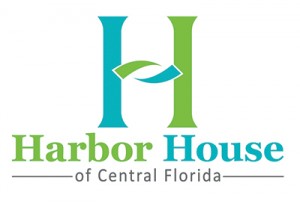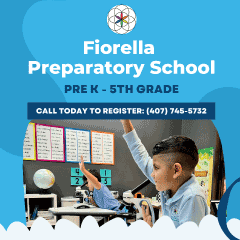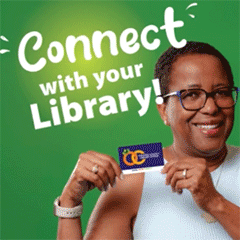Violent Relationships: It Could Happen to Your Teen
October is Domestic Violence Awareness Month
Susan is a local high school sophomore. One night, her boyfriend of two months was furious that she hadn’t responded to one of his texts fast enough. When she tried to explain that she’d been busy, he became more agitated. Susan ended the relationship, but soon her ex sent a barrage of harassing text messages and began stalking her at school. She became fearful of him and made sure that she never found herself walking on campus without an adult. Next, Susan’s mother filed an injunction through the court system to keep him away from her daughter.
 1-in-3 teens will experience teen dating violence before graduating from high school; and, of those, only 33% will tell someone about it. However, 80% of parents don’t believe that teen dating violence is a big issue. Susan’s unfortunate experience is just one of many teen-related stories that Harbor House of Central Florida, Orange County’s only state-certified domestic violence shelter, learns about on a daily basis. The organization is committed to helping teenagers and their families recognize abuse and end it, whether it’s through technology, at school, or at home.
1-in-3 teens will experience teen dating violence before graduating from high school; and, of those, only 33% will tell someone about it. However, 80% of parents don’t believe that teen dating violence is a big issue. Susan’s unfortunate experience is just one of many teen-related stories that Harbor House of Central Florida, Orange County’s only state-certified domestic violence shelter, learns about on a daily basis. The organization is committed to helping teenagers and their families recognize abuse and end it, whether it’s through technology, at school, or at home.
Dating is a frequent catalyst of abuse, so recognizing the early warning signs is imperative in any relationship. When dating partners monitor, isolate, insult, or are extremely jealous, insecure, or possessive, that is considered abuse.
“In today’s society, teen bullying and abuse are becoming more prevalent,” stated Carol Wick, CEO of Harbor House. “Children can experience an unhealthy relationship at home, in a dating relationship, or even at school. It’s important that they – starting at a young age – understand what a healthy relationship is. And, if they are provided the tools to identify the warning signs, they will have the ability to control their own relationship decisions and provide help to someone who might be in danger of abuse. We’re trying to stem the tide early on in their lives, so they can be the difference for their own generation and those that follow.”
Among many efforts, Harbor House is working to prevent and end teen dating violence. Part of this effort includes its Leaders of Courage courses for kindergarten through high school levels, a program which teaches: What a healthy relationship really is, how to look for warning signs of abuse, where to get help, how to stand up against abuse and bullying, and how to empower those affected by domestic violence.
Through Leaders of Courage, an annual teen summit occurs every February during Teen Dating Violence Awareness Month. It’s a one-day conference for youth to unite and learn about healthy relationships, bystander intervention, the influence of social media on abuse, and violence prevention. It offers an engaging day of interactive sessions, fun activities, and dynamic speakers, as well as parent workshops.
“By starting with our youth, we’re hoping we can help reduce the number of domestic abuse incidents within our own region,” Wick explained. “1-in-3 women across the U.S. will experience domestic abuse during their lifetime. By equipping our youth – and as they go out into the world as productive members of society – it’ll spread across the U.S. and around the globe.” Locally, Harbor House works tirelessly to fight this epidemic. Children account for two-thirds of survivors temporarily living at the shelter.
 Harbor House opened its doors in 1976 as a safe haven for survivors of domestic abuse. Under the leadership of Carol Wick who became CEO in August 2006, the organization has evolved into one of the most comprehensive domestic abuse centers in the country and is considered a national leader in domestic abuse intervention, awareness, and prevention. It’s become much more than a shelter. Harbor House seeks to eliminate domestic violence by providing safety, shelter, counseling, education, advocacy, and justice. In addition to providing a 110-bed emergency shelter that is operated 24 hours a day for women, men, children, and animal survivors of family violence, it has expanded to provide children’s services, community outreach, legal advocacy services, and community and professional education. Last year, Harbor House helped more than 9,000 survivors through its hotline, shelter, and advocacy services; and reached an additional 24,000 people through its education and outreach events.
Harbor House opened its doors in 1976 as a safe haven for survivors of domestic abuse. Under the leadership of Carol Wick who became CEO in August 2006, the organization has evolved into one of the most comprehensive domestic abuse centers in the country and is considered a national leader in domestic abuse intervention, awareness, and prevention. It’s become much more than a shelter. Harbor House seeks to eliminate domestic violence by providing safety, shelter, counseling, education, advocacy, and justice. In addition to providing a 110-bed emergency shelter that is operated 24 hours a day for women, men, children, and animal survivors of family violence, it has expanded to provide children’s services, community outreach, legal advocacy services, and community and professional education. Last year, Harbor House helped more than 9,000 survivors through its hotline, shelter, and advocacy services; and reached an additional 24,000 people through its education and outreach events.
Harbor House is one-of-seven domestic violence centers in Florida that includes an on-campus Paws for Peace Kennel. In just three years, the pet-friendly service has been the transition home to more than 100 dogs, cats, birds, fish, turtles, and guinea pigs. In fact, up to 48% of domestic violence survivors delay leaving their abuser out of fear of what will happen to their pets. The kennel ensures no family member is left behind in an abusive home.
Harbor House also created the R3 app to encourage healthcare professionals and those at-risk to Recognize, Respond, and Refer (R3) to domestic abuse. While it was designed for medical settings, the organization recognized that those in abusive relationships could also utilize the tool. It’s free and easy to download and asks four simple questions to help one identify if they are in an abusive relationship; then asks for the zip code of where the survivor resides to provide the closest state-certified domestic abuse center.
If you or anyone you know might be experiencing domestic abuse, please call the 24-hour, confidential hotline at (407) 886-2856 (local) or (800) 500-1119 (statewide). Learn more at HarborHouseFL.com.











